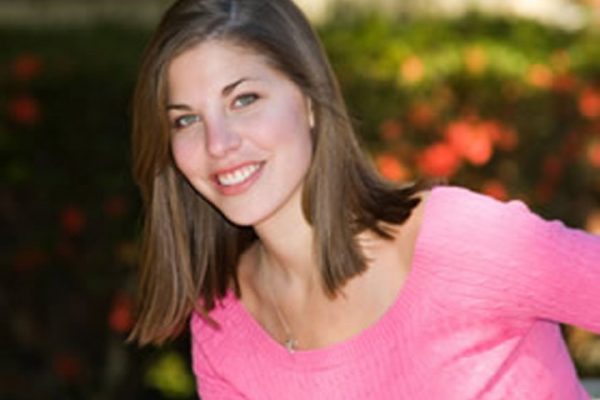
“Florida State has always meant family to me. Throughout my life, my cousins, grandparents, aunt, and uncle would meet my sisters, mom, and me for football games—like mini reunions during the fall.”
“I became a chemical engineer because of my high school teacher, Mrs. Marez. She taught me the joy of doing what you love and instilled a passion for Chemistry that clarified what the rest of my life could be,” says Rebecca Stone, only a sophomore and yet a winner of this year’s prestigious Goldwater Scholarship.
An Honors student, Rebecca credits her “amazing mother” for her academic excellence. “She has always supported every activity my sisters and I wanted to do, but, being a teacher, she also stressed the importance of doing our best in schoolwork. Through her example my sisters and I have acquired a work ethic and have learned time management and dedication.”
At which university could she best apply these skills? “Florida State has always meant family to me. Throughout my life, my cousins, grandparents, aunt, and uncle would meet my sisters, mom, and me for football games—like mini reunions during the fall. However, when choosing a college, FSU’s opportunities for significant chemical research solidified it as my top choice.”
That significant research began in her freshman year. As an Honors student who had completed Chemistry I, she learned she could perform research under a professor for the required lab credit in Chemistry II. Serendipitously, Sir Harold Kroto, professor of Chemistry and a Nobel Laureate, came to speak at Rebecca’s Honors Colloquium. “My mom always encourages my sisters and me to try for what we want, ‘The worst that can happen is that they will say no.’ So, I asked him if he took undergraduates in his lab. He said, ‘Not usually, but come talk.’ I did, and today I am benefiting from that chance encounter.”
Dr. Steve Acquah, associate researcher and an integral part of Sir Kroto’s research team, supervises Rebecca’s work. “He has taught, guided, and provided me with opportunities many wouldn’t see until graduate school; through him, I was one of the first researchers on the East Coast to work with double-walled carbon nanotubes.”
The research team has had numerous breakthroughs in the search for methods to lengthen these nanotubes, which may play a vital role in cancer research and in improving synthetic and building materials. Rebecca explains, “Nanotubes are made from buckminsterfullerene, the third form of carbon. Because of their structure, they are stronger than steel but much lighter. However, they do not form into long enough chains to be of any use. If we can do this, they could replace steel as a building material and be used as military protective armor.”
Rebecca believes she won the Goldwater Scholarship, the nation’s premiere award for engineers, scientists, and mathematicians, “because I was given an opportunity to be part of such an advanced, cutting edge team.”
She will not be graduating until spring 2010, but she is already looking to the future with excitement—”a master’s from Georgia Tech, a Ph.D. from MIT, a family, and a research career in Boston.”




